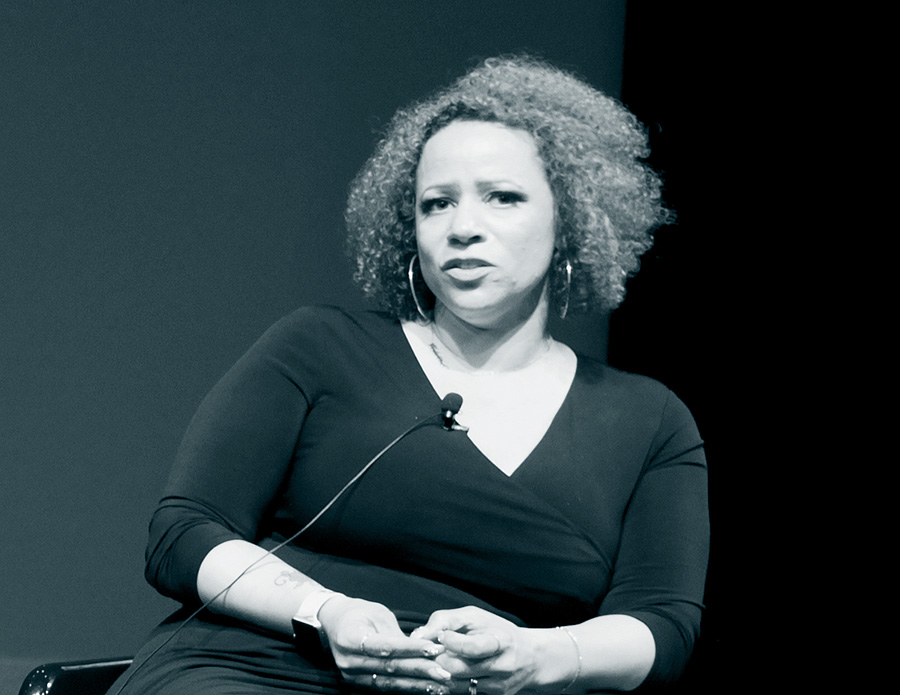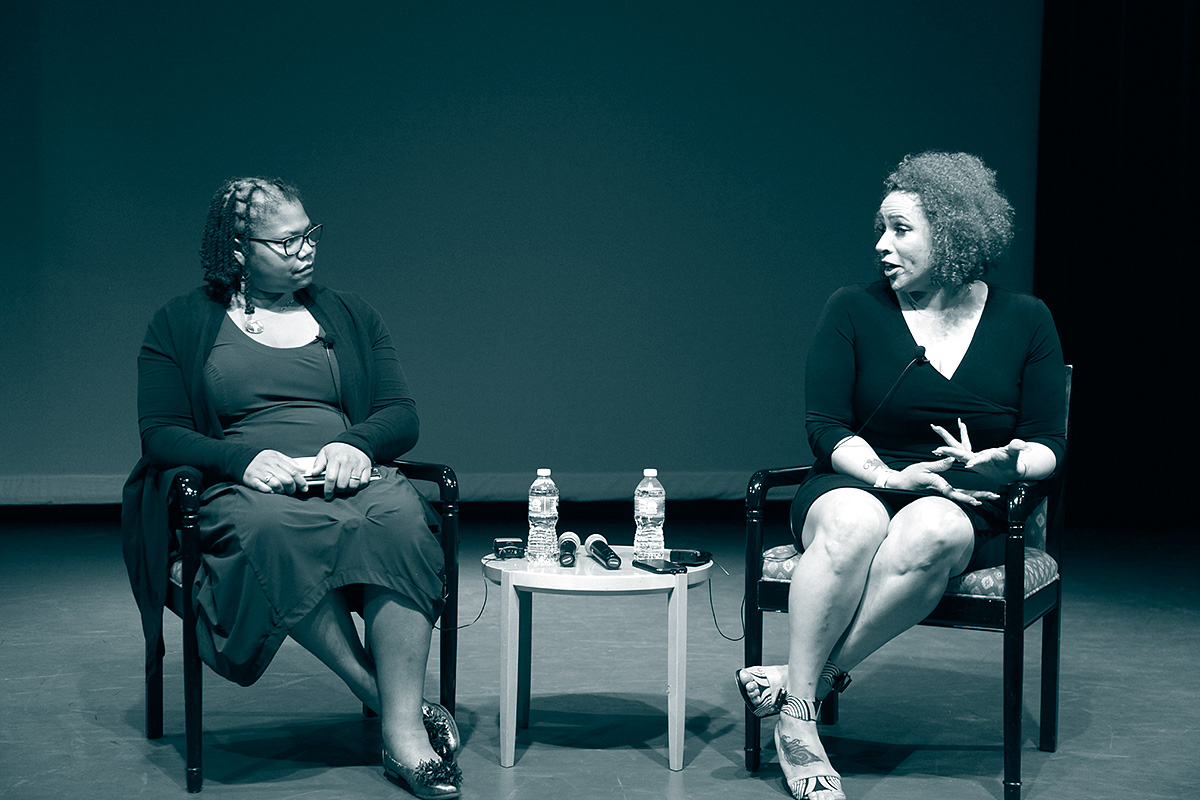Doing the Right Thing: Ethical Obligations and School Re-segregation in America
The guest was none other than award-winning New York Times journalist, Nikole Hannah-Jones. Originally from Iowa, Jones is no stranger to the Triangle having graduated from UNC and worked for the Raleigh News & Observer and the African-American Triangle Tribune. As one would expect from anyone who adopted the name of one of America’s most famous investigative journalists, Ida B. Wells, as her Twitter handle, Jones engaged in a lively debate with her audience over racism, school desegregation, charter schools, and vouchers.
Why do we keep “hating on reporters?” Lentz-Smith asked Jones. Public anger at the media is a symptom of the lack of good reporting outside of big cities and sloppy journalism that seems to hide sources rather than reveal them. As ad revenues fall off, newspapers are finding it hard to make their bottom line with subscriptions only. Add to that the “gossipy” nature of a lot of news these days (poorly sourced and relying on anonymous tips) and you have a recipe for media fatigue among the public. The solution? Explore new funding models (private foundations and philanthropy are possibilities) and be as transparent as possible with readers about who your sources actually are.
Jones reminisced about working for the newspaper, Triangle Tribune, when asked about the crisis facing the African-American press in particular. So important in the post-World War II period for their searing coverage of lynchings and Jim Crow legislation, their decline means there’s now less coverage of civil rights in general and the loss of a unique perspective on issues important to the black community. For those interested to see what we’re in the process of losing, Jones recommends Gerrick D. Kennedy’s article analyzing the impact of Nipsey Hussle’s murder on the L.A. community in which he lived and supported.
Jones, Lentz and members of the audience voiced strong opinions for and against charter and magnet schools throughout the discussion. Jones came out emphatically against any attempt to “resegregate” neighborhoods under the banner of “school choice.” Education is increasingly thought of as a consumer good instead of a common good in American elite circles, she warned. Explaining the hard choices facing parents who want to do right by their children, she admitted “You wrestle with protecting your child or addressing larger social ills”. But for Jone the ethical choice was clear.
Bringing it back to the Durham public schools, she warned that school inequality in Durham is getting worse by white withdrawal from public school systems, as they send their kids to charter, magnet, or private schools. In a stark criticism, Jones added, “Everyone (white and black) has abandoned poor black kids:” Is it really equitable to have only 18% of white families enrolling their children in Durham public schools?


The Ethics of Now with Adriane Lentz Smith continues next year.
